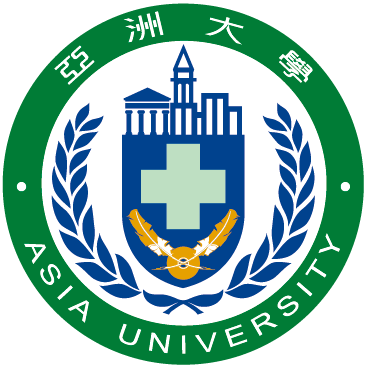Academician Kang-Long Wang of Academia Sinica Appointed Honorary Director to Establish Innovative AI Smart Healthcare Quantum Platform
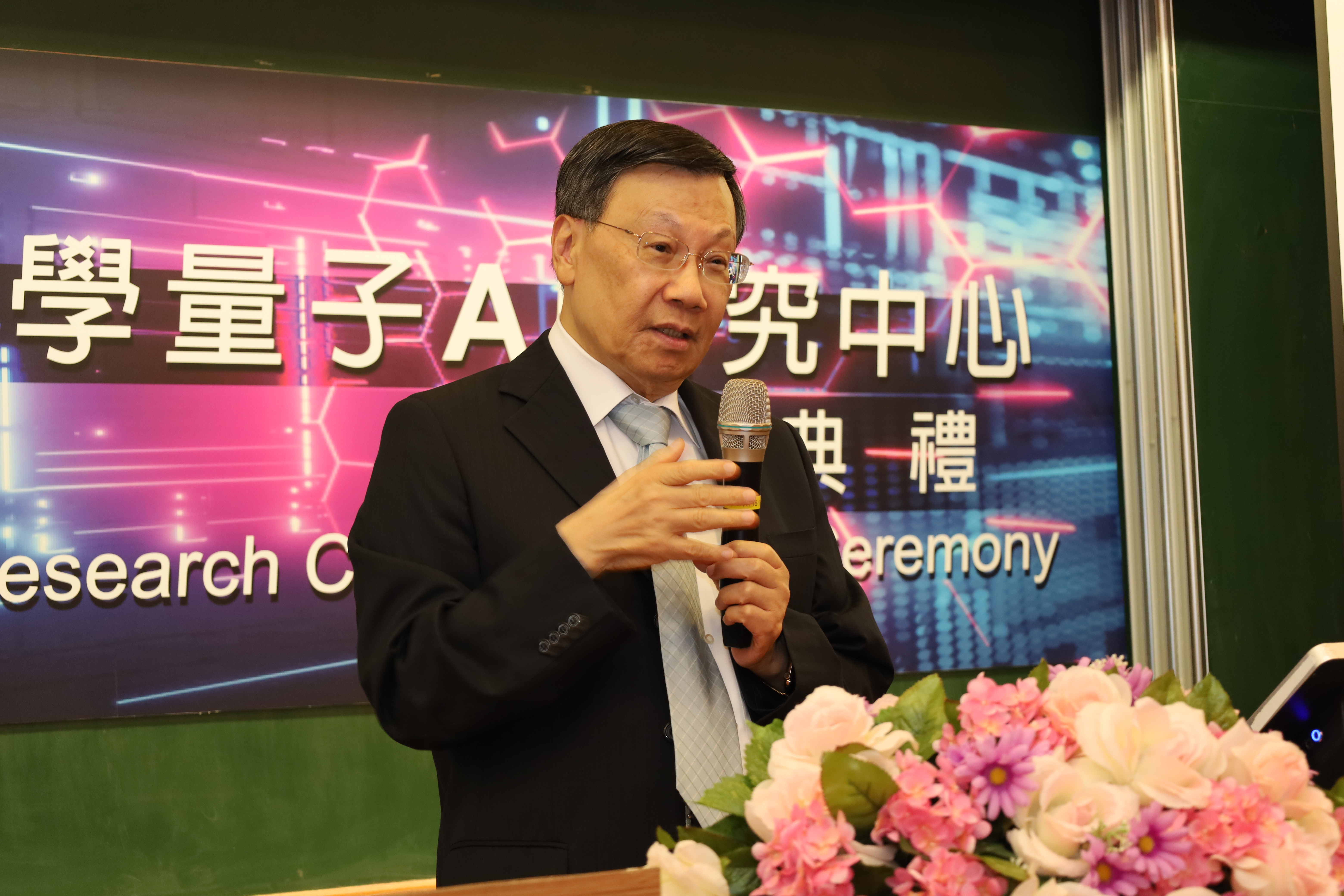 Asia University President Jeffrey J.P. Tsai stated that with the addition of Academician Kang-Long Wang and the university’s established foundation in AI research, they are confident in building an innovative AI smart healthcare quantum platform and cultivating international talent equipped for the quantum AI era.
Asia University President Jeffrey J.P. Tsai stated that with the addition of Academician Kang-Long Wang and the university’s established foundation in AI research, they are confident in building an innovative AI smart healthcare quantum platform and cultivating international talent equipped for the quantum AI era.
Asia University inaugurated its “Quantum AI Research Center” on the 10th, appointing Academician Kang-Long Wang, a world-renowned quantum science expert from Academia Sinica, as Honorary Director. President Jeffrey J.P. Tsai stated that Academician Wang has long been devoted to research in quantum computing, quantum materials, and quantum information theory, earning significant influence in the international academic community. With his addition and Asia University’s established foundation in AI research, the university is confident in building an innovative AI smart healthcare quantum platform and cultivating international talent prepared for the quantum AI era.
President Tsai emphasized that AI is driving rapid societal transformation, while quantum computing is considered the “next disruptive technology.” The integration of quantum computing and AI is expected to revolutionize the world. In the coming years, applications in AI, drug development, and climate prediction are projected to generate tremendous economic value. Asia University’s Quantum AI Research Center will focus on interdisciplinary integration and industry-academia collaboration, advancing quantum algorithm design, quantum machine learning, cybersecurity, and encryption applications, while extending practical applications to AI smart healthcare and smart finance. The center aims to play a pioneering role in the quantum AI field, cultivating talent with both international perspectives and innovative practical skills to support academic and industrial growth and innovation.
President Tsai also noted that NVIDIA founder Jensen Huang has shown keen interest in the prospects of quantum AI. At the Paris VivaTech Conference in June 2025, Huang highlighted how quantum computing will enhance AI supercomputers, contributing to major fields such as new drug development and materials research. He also announced the establishment of the “NVIDIA Accelerated Quantum Research Center” (NVAQC) to promote the integration of quantum hardware with AI supercomputing—aligning closely with Asia University’s Quantum AI research direction and heralding a new era of “Quantum + AI” technology.
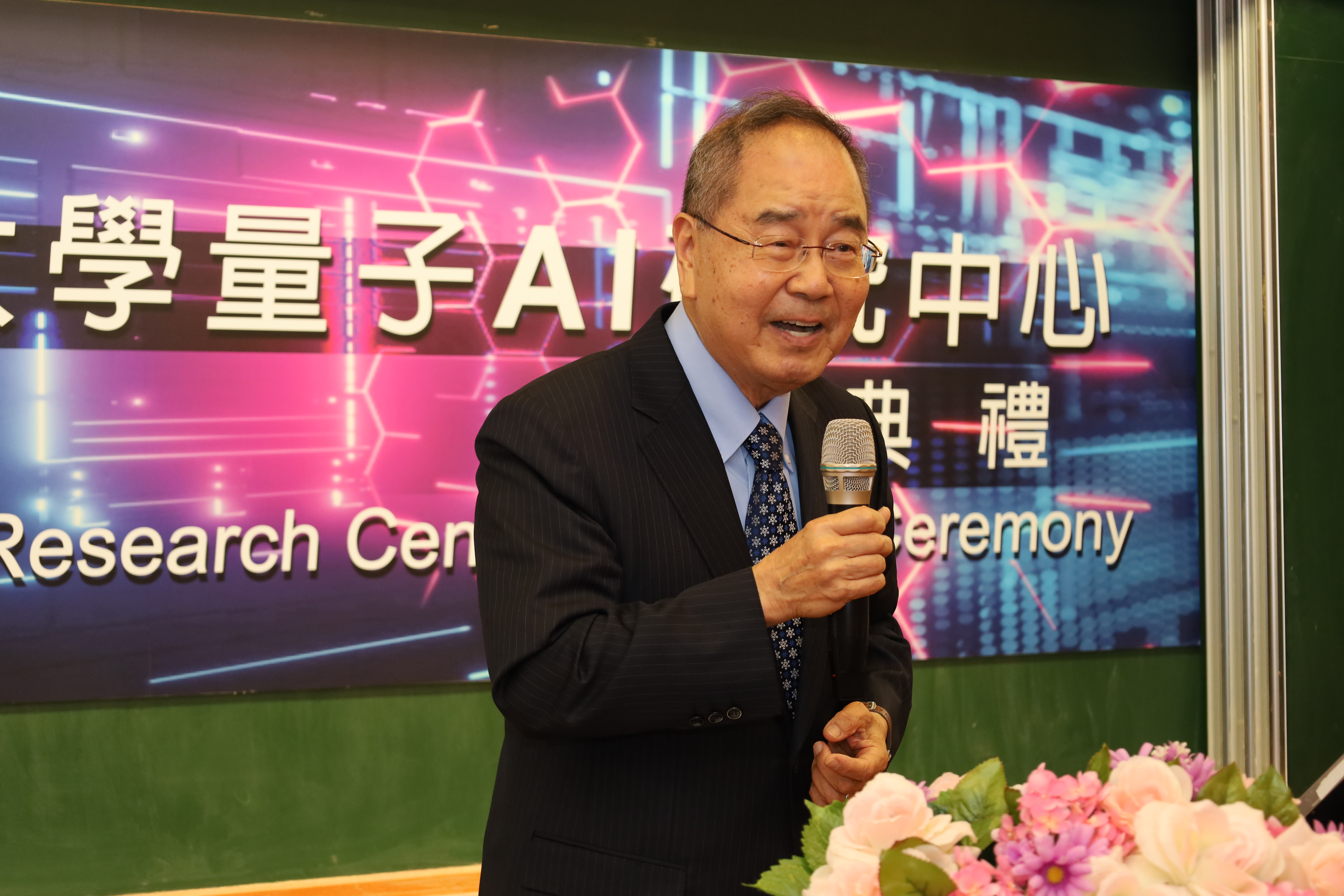 Academician Kang-Long Wang remarked that President Tsai is highly visionary, first integrating AI into healthcare and now incorporating quantum technologies.
Academician Kang-Long Wang remarked that President Tsai is highly visionary, first integrating AI into healthcare and now incorporating quantum technologies.
At the inauguration ceremony, President Jeffrey J.P. Tsai presented the appointment certificate of Honorary Director to Academician Kang-Long Wang. Currently a professor at the University of California, Los Angeles, Wang specializes in spintronics, semiconductor electronics, and nanotechnology. He is renowned worldwide for his pioneering research in quantum materials and computing, and has received numerous awards, including the U.S. Semiconductor Research Corporation Invention Award, the European MRS Best Paper Award, and the Distinguished Achievement Award from the Chinese Institute of Engineers in the Americas.
Academician Wang remarked that President Tsai is highly visionary, having first integrated AI into healthcare and now incorporating quantum technologies. He likened traditional computers to gifted students who answer questions step by step but may take a long time to solve them. Quantum computers, in contrast, are like all students working in parallel, sharing information and collaborating, even outperforming the teacher—demonstrating the true power of quantum computing.
Founder Pan Chien-Cheng of Phison Electronics stated that Asia University’s establishment of the Quantum AI Research Center showcases forward-looking strategy. Phison’s patented aiDAPTIV+ technology can help quantum computers enhance AI model fine-tuning and inference efficiency. Equipped with this technology, the AITPC (AI Training Computer) supports large-scale AI model training, enabling rapid medical data analysis and AI application development, while cultivating internationally competitive cross-disciplinary AI talent.
In collaboration with Asia University, AMD established the “AMD Logic and Computing Laboratory” to jointly train advanced AI semiconductor professionals and plans to deepen future cooperation in the quantum field. AMD promotes open standards and open-source tools, including ROCm™ software, and continues contributions to high-performance and quantum frameworks such as PyTorch, vLLM, SGLang, and TensorFlow. Through collaboration with Oak Ridge National Laboratory, AMD is advancing hybrid quantum-classical computing, accelerating applications in drug development, cryptography, supply chain optimization, and machine learning, expanding the practical use of quantum-accelerated computing.
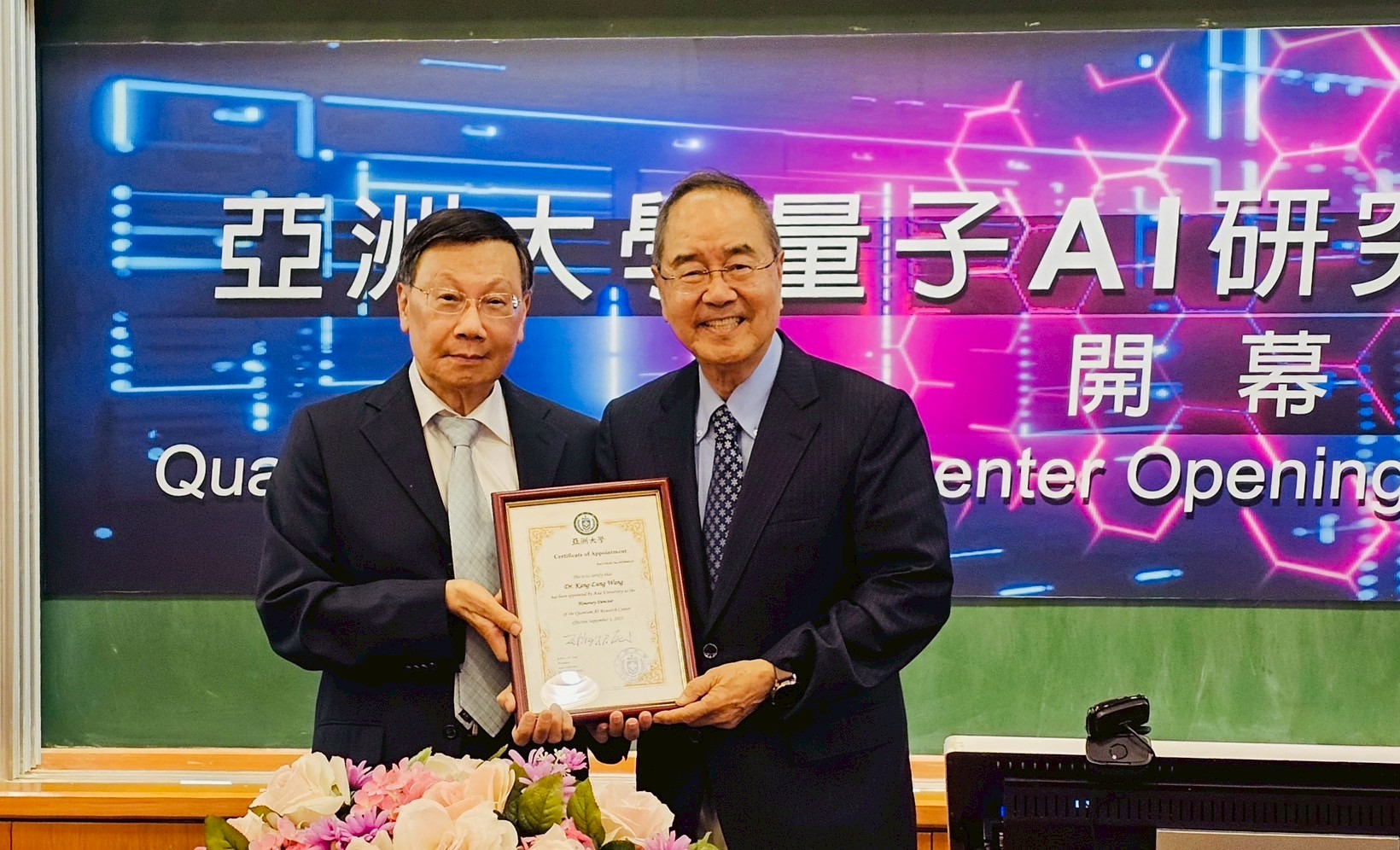 Asia University President Jeffrey J.P. Tsai (left) presents the Honorary Director certificate to Academician Kang-Long Wang.
Asia University President Jeffrey J.P. Tsai (left) presents the Honorary Director certificate to Academician Kang-Long Wang.
Professor Kuang-Cai Huang, Director of Asia University’s Quantum AI Center and Chair Professor of the Department of Computer Science, pointed out that Quantum AI not only operates at higher speed but can also reveal hidden structures at the molecular, neural, and magnetic field levels, functioning as a modern “quantum microscope.” Quantum AI is gradually entering clinical applications in smart healthcare, enabling the construction of quantum AI diagnostic frameworks and disease simulation workflows. Compared to traditional machine learning models, it improves diagnostic accuracy and convergence speed, extracts key patterns from limited data, reduces medical data costs, and has significant potential for future upgrades. The industry anticipates that practical applications will emerge before 2030.
Professor Huang explained that, for example, in “precision neural simulation and mental disorder modeling,” conventional computer-based neural network models cannot capture microscopic quantum effects. Using quantum generative models to simulate neural state distributions, combined with quantum reinforcement learning to model neural decision pathways, may enable more accurate brain diagnostic models for diseases such as Alzheimer’s and depression. Additionally, in multimodal medical image fusion and diagnostics, quantum convolutional neural networks can classify images, and quantum state superposition can embed multimodal data, enhancing early detection accuracy for cancers and brain abnormalities while reducing misdiagnosis rates and diagnostic time. The application of quantum AI algorithms in medical scenarios is expected to deliver transformative benefits.
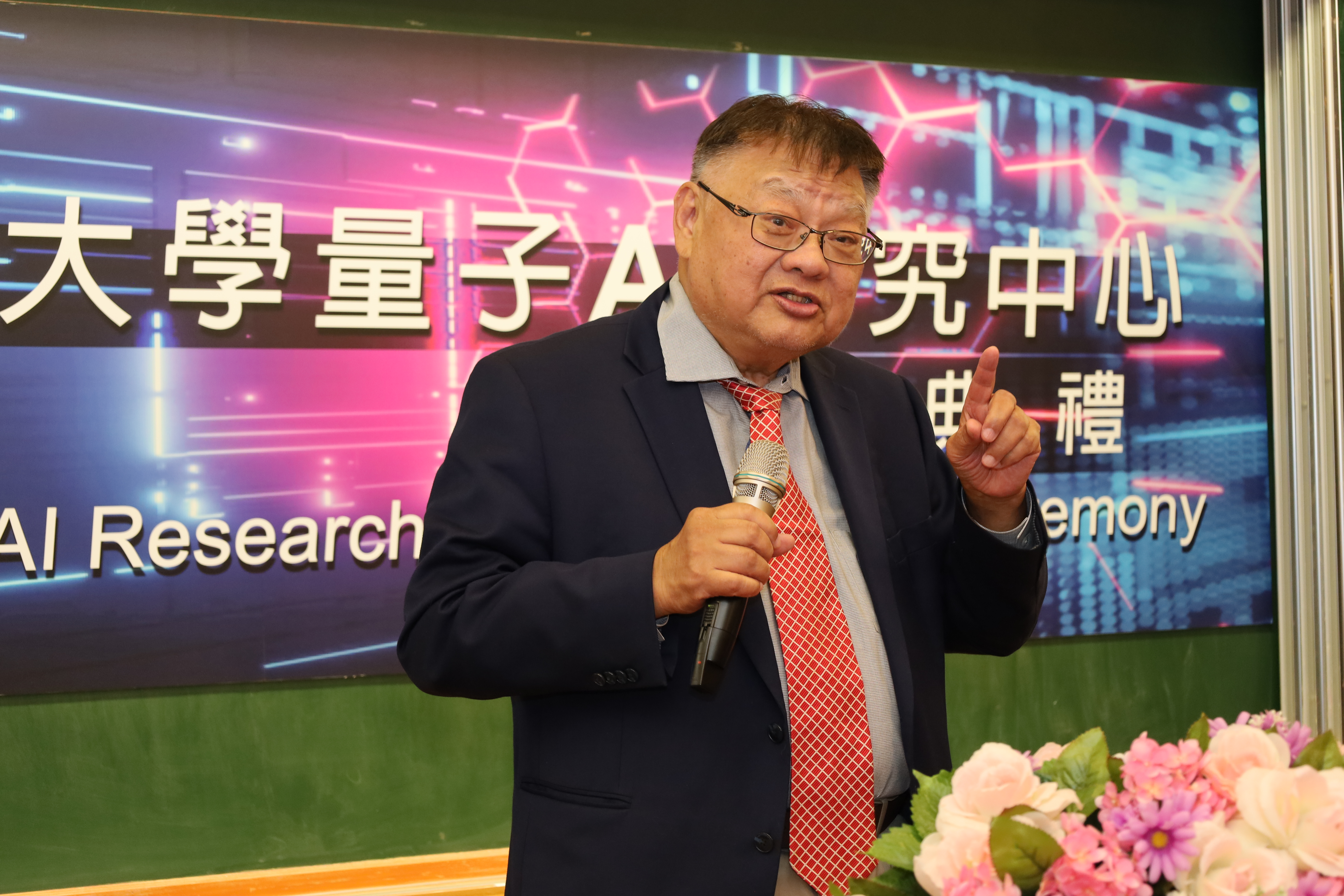 Professor Kuang-Cai Huang, Director of Asia University’s Quantum AI Research Center, stated that Quantum AI not only operates faster but can also uncover hidden structures at the molecular, neural, and magnetic field levels, serving as a modern “quantum microscope.”
Professor Kuang-Cai Huang, Director of Asia University’s Quantum AI Research Center, stated that Quantum AI not only operates faster but can also uncover hidden structures at the molecular, neural, and magnetic field levels, serving as a modern “quantum microscope.”
In fact, Asia University has previously launched multiple quantum-related initiatives, including the “Cloud Innovation Academy” in collaboration with Amazon AWS, quantum computing workshops and online forums, and mentoring students to participate in the International Quantum Computing Hackathon, winning awards consecutively. The university has also actively promoted industry-academia cooperation, visiting companies such as QiAn Quantum Cybersecurity and Phison Electronics to jointly advance post-quantum cryptography research and unmanned vehicle applications, aligning with the government’s “post-quantum era” information security strategy. The establishment of the Quantum AI Research Center demonstrates Asia University’s ambition to embrace the next wave of technological innovation.
Founder Dr. Jeffrey Jang-Hai Tsai previously mentioned during the “114th Academic Year Consensus Camp” that future development priorities for the university include the “Smart Semiconductor Design and Sustainable Manufacturing Research Center,” the “Precision Health Research Center,” and the “Quantum AI Research Center.” Asia University will continue to focus on innovation, responding to global digital transformation and sustainable development trends, advancing toward becoming a world-class university.
President Jeffrey J.P. Tsai stated that the Quantum AI Research Center will cultivate professional consultants skilled in quantum supercomputing software and applied computing to solve real-world problems. The university plans to offer quantum computing courses on platforms including AMD, NVIDIA, IBM, Amazon, and Microsoft Azure. In addition, collaborations with international industry-academia-research institutions will enhance R&D capacity and accelerate the application of AI and computational technologies in industry on a global scale. Importantly, the center will contribute to the development of sovereign AI capabilities in Taiwan, prioritizing healthcare, and positioning Taiwan’s medical industry as a globally recognized leader under the “Taiwan Can Help” initiative.
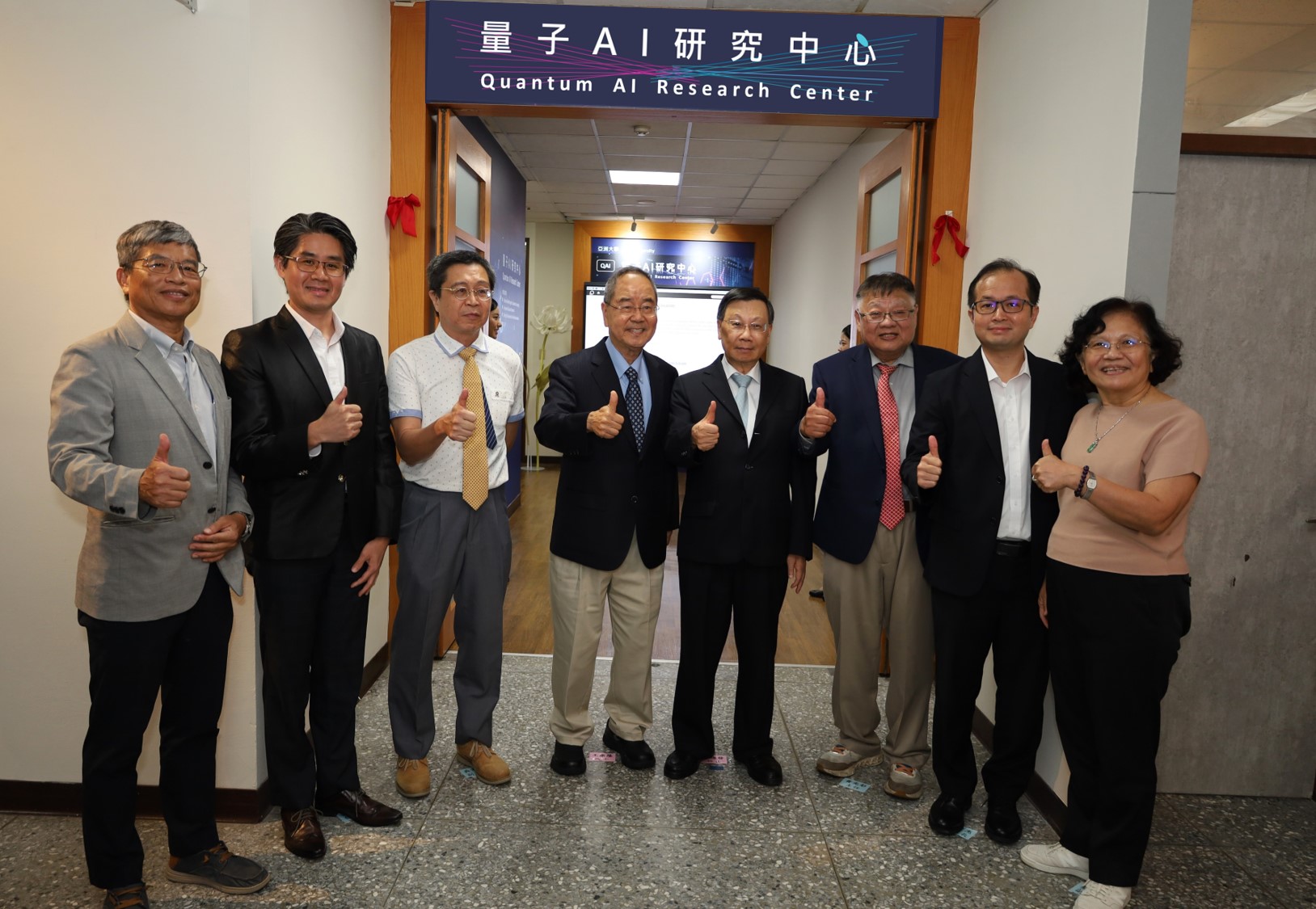
At the inauguration of Asia University’s Quantum AI Research Center, President Jeffrey J.P. Tsai (4th right), Honorary Director Academician Kang-Long Wang (5th right), Director Professor Kuang-Cai Huang (3rd right), and Phison Electronics spokesperson Lu Kuo-Ting posed for a group photo.
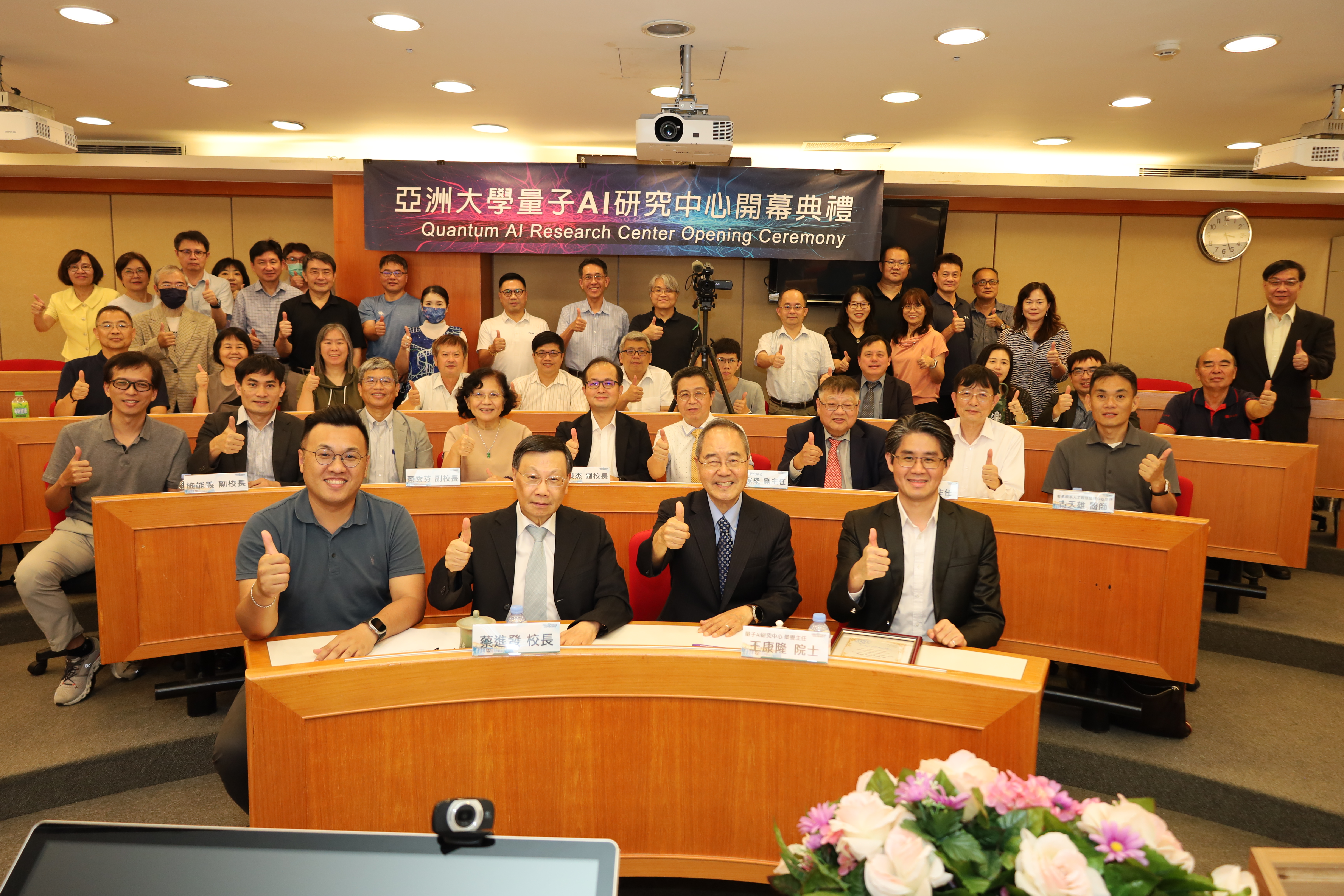
At the inauguration of Asia University’s Quantum AI Research Center, President Jing-Fa Cai (2nd left), Honorary Director Academician Kang-Long Wang (2nd right), and Phison Electronics spokesperson Lu Kuo-Ting (1st right) posed for a group photo.
